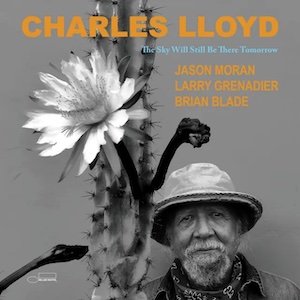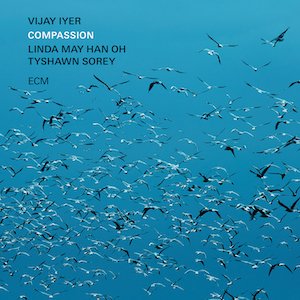Label: Intakt Records, 2024
Personnel - David Murray: tenor saxophone, bass clarinet; Marta Sanchez: piano; Luke Stewart: bass; Russell Carter: drums.
David Murray, a veteran saxophonist and key figure in free jazz and avant-garde circles since the 1970s, showcases his prowess with a new quartet on the album Francesca. Featuring talented younger musicians Marta Sanchez on piano, Luke Stewart on bass, and Russell Carter on drums, the ensemble delivers a captivating blend of jazz tradition and fiery soloing across eight tracks.
The album kicks off with the title track, a joyful and expressive piece dedicated to Murray’s wife. Maintaining a straightforward 3/4 time signature, the tune, harmonically transparent, never loses composure even when Murray gets out of orbit with his improvisational extravagance and fervency. “Ninno”, originally recorded for Murray’s 2023 trio album Plumb (with Questlove and Roy Angry), reappears here with crossover potential and immersed in groove. With a catchy four-note riff at the center, this cut blends funk, Latin, and swinging jazz elements in different proportions.
Murray’s pronounced hooks, all quirky but uplifting, are not reserved to the tenor saxophone. We can hear him playing the bass clarinet on “Shenzhen”, where he mixes oriental and bolero flavors with sumptuous moves and great piano work by Sanchez, and Don Pullen’s mid-tempo waltz “Richard’s Tune” (penned for Muhal Richard Abrams), introduced by a nice rubato preamble crafted by him and the pianist.
“Come and Go”, flowing at 5/4 time with some moments of romanticism, puts together a sequence of avant-garde and post-bop ingredients, displaying saxophone obliques that traverse the rhythmic tapestries with cyclonic fury. “Am Gone Get Some” exudes humor and cool bluesy deliberation with some Monk’s mood, while “Free Mingus”, underpinned by a rock-steady backbeat, infuses gospel and R&B tinges, showcasing Stewart’s loosened groove and soloing skills.
Exhibiting a variety of tempos and tones, Francesca finds Murray living up to his potential in stark, charming, and dynamic ways.
Favorite Tracks:
02 - Ninno ► 04 - Come and Go ► 05 - Am Gone Get Some








































